FOREST FLASH
September 2024
In Pacific Forest Trust’s e-newsletter, Forest Flash, we send you the most recent PFT news and updates on forests, clean water, climate, and wildlife. Subscribe here.
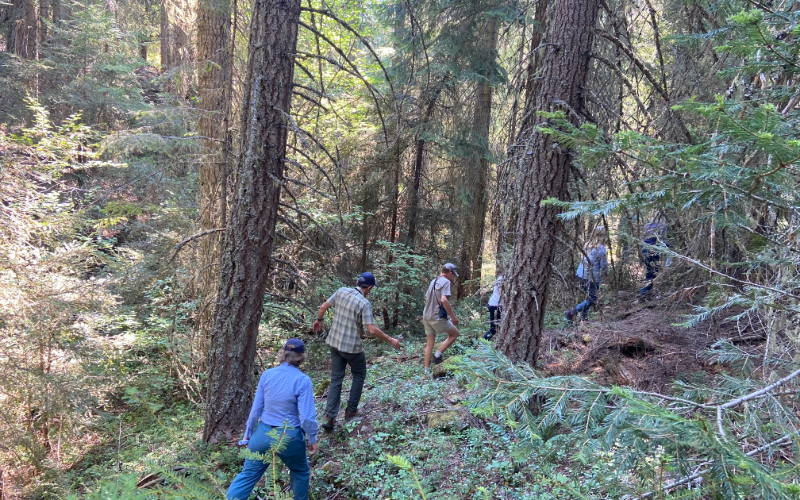
On September 16, 2024, Representative John Garamendi introduced H.R.9602 the “Forest Legacy Management Flexibility Act” in Congress, marking a significant effort to enhance public-private forest conservation partnerships. This legislation allows states the option of having accredited nonprofit land trusts hold conservation easements acquired under the US Forest Service’s Forest Legacy Program, broadening the impact of forestland protection across the nation. Many states would like the ability to have accredited land trusts undertake the stewardship responsibility of caring for these easements effectively, as this lowers their administrative burden under the program and they are not set up for this very purpose. In addition, many landowners do not want the government as their “forever partner” in conserving their lands. The bill builds on earlier bipartisan initiatives introduced by Representatives Chris Gibson and Elise Stefanik of New York.
H.R. 9602 also includes two other key provisions: First, it allows federally held easements to be transferred to states other than Vermont, incorporating a U.S. Forest Service policy request. Second, it strengthens land trust eligibility requirements by importing reforms from the Charitable Conservation Easement Program Integrity Act of 2021, ensuring only accredited trusts can hold these easements.
“My bill would unlock billions in federal funding to help states conserve working forestlands to support jobs and sustainable forest management that reduces wildfire risk,” said Congressman Garamendi.
The Forest Legacy Program, funded by the Land and Water Conservation Fund, is vital to conserving working forestlands. With an average loss of over 1 million acres of forestland annually, Garamendi’s bill aims to counter this trend by expanding flexibility and collaboration between states, landowners, and land trusts. Allowing states to partner with accredited nonprofit land trusts will conserve more forests by leveraging additional resources and reducing administrative barriers, better supporting landowners, rural economies and scaling sustainable forest management.
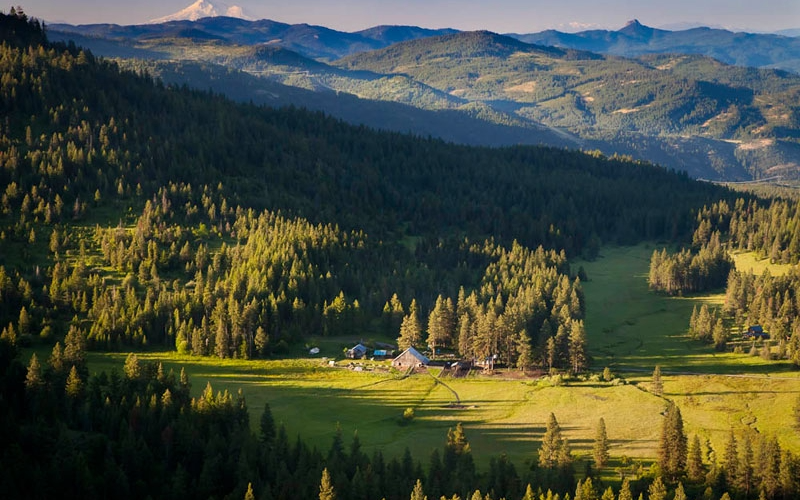
PFT is making steady progress towards securing the future of Willow-Witt Ranch, a 450-acre ecological treasure in southern Oregon. Located near the Cascade-Siskiyou National Monument—the first national monument established in recognition of its globally significant biodiversity—Willow-Witt Ranch is home to conifer forests, oak woodlands, and extensive wet meadows. Owners Suzanne Willow and the late Lanita Witt carefully restored and stewarded the land, improving its ecological health, all while providing opportunities for people to connect with the wonders of nature via educational programs, recreational trails, and an organic farm that produces eggs, milk, vegetables, and livestock.
Today, PFT is working to protect the ranch through a working forest conservation easement, preserving its vital habitats and connecting it to the larger protected landscape of the Monument. Long treasured by the nearby community of Ashland, there is strong support for protecting this unique landscape. Protecting the ranch also ensures cold, clean water flows into the Rogue watersheds, which benefit fish, wildlife and downstream communities. The high-elevation ponds and wetlands are home to rare species like the northwestern pond turtle and the yellow-legged frog.
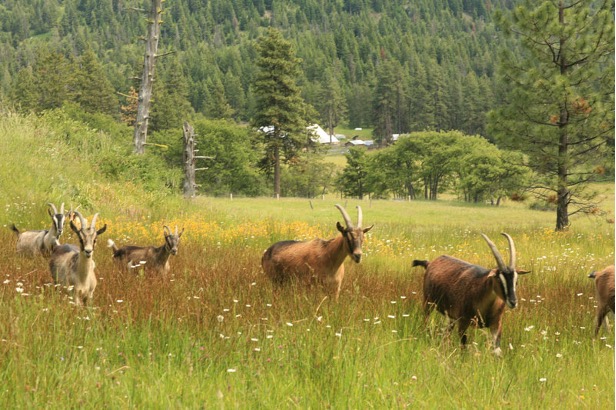
These goats are among the livestock that calls Wilow-Witt Ranch home.
Conserving the Willow-Witt Ranch will help build a resilient, interconnected landscape that enables plants and animals adapt to the pressures of climate change. The mosaic of private and public lands in the region poses challenges to habitat continuity, and protecting Willow-Witt is vital for creating a continuous ecological corridors. As climate change alters the environment, this project enhances the ability of plants and animals to move across the landscape, ensuring their long-term survival. Conserving this property will honor Suzanne and Lanita’s legacy of sustainable land management while safeguarding its environmental and community values for future generations.
Please consider a donation to the Pacific Forest Trust. Your help—in all capacities—makes our work possible. Thanks for supporting us as we support forests!
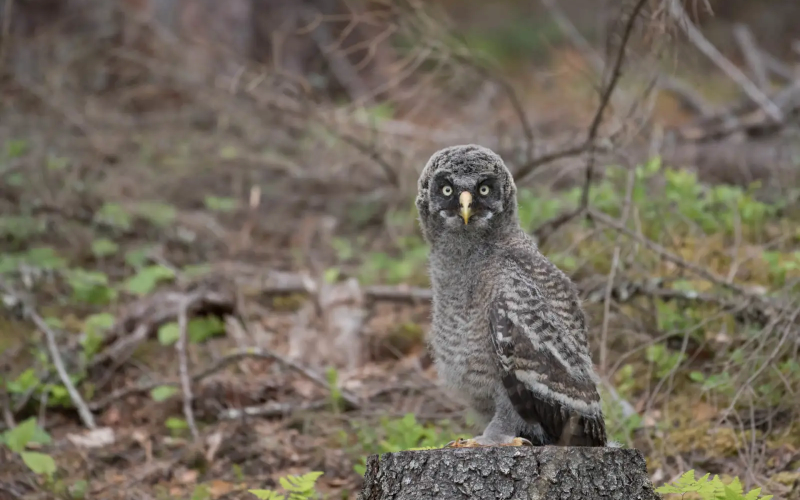
In 2015, PFT worked with Collins, a family-owned timber company, to conserve its almost 33,000-acre Goose Lake Working Forest in Modoc County, California. This remarkable landscape, which includes more than 10,000 acres of rejuvenated forest and meadows, is recovering from two back-to-back fires, the 2012 Barry Point and 2007 Fletcher fires. Overall, roughly 70% of the property was burned. One of the outstanding features of this working forest is that it was home to one of the largest populations of Great Gray Owls in California. A key question has been how the habitats on the property which enable the owl to thrive would recover. This summer, PFT Stewardship Manager Shay Brown monitored the property to see how restoration from the fires was progressing.
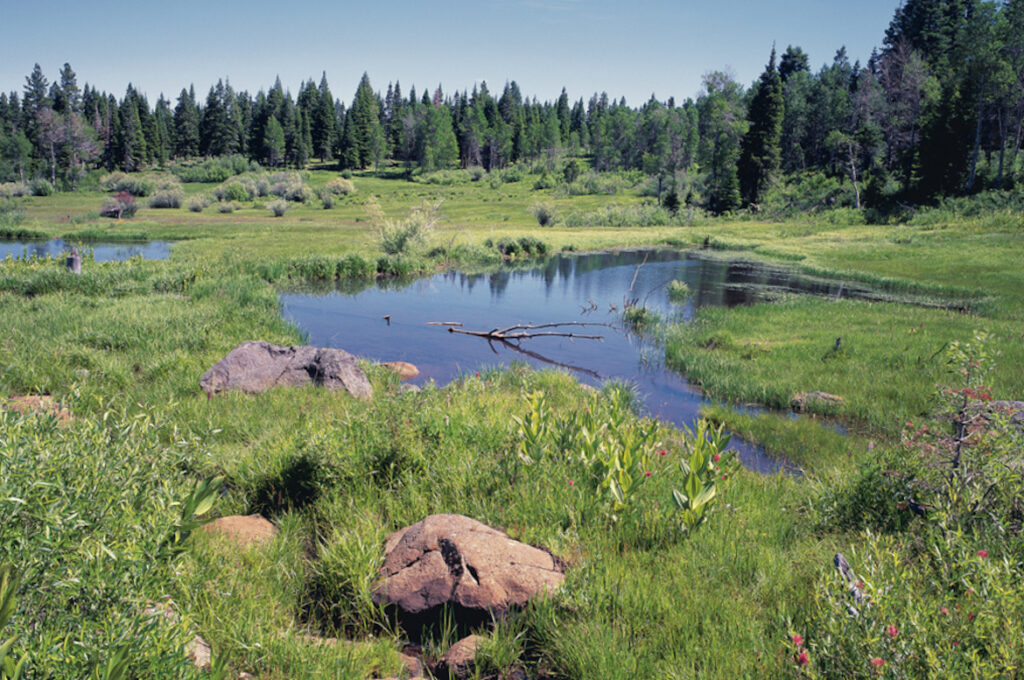
Goose Lake Working Forest’s vibrant forests and meadow habitats are home to Great Gray Owls and other species.
Today, vibrant forest and meadow habitats are reemerging, providing crucial homes for wildlife, including the Great Gray Owl. These majestic owls, characterized by their large size and distinctive facial discs, thrive in the open meadows that are interspersed with conifer forests across the property. As skilled hunters, these owls rely on abundant rodent populations that flourish in the diverse habitats restored through ongoing stewardship efforts. The recovery of these forests and meadows highlights the ecological resilience of the area, showcasing the success of our joint conservation-restoration project with Collins initiated after the fires.
The WFCE on the lands embodies commitment of Collins to sustainable, natural forest management and ensures that the forest continues to provide myriad public benefits in addition to long term timber supplies. The headwaters of the Pit River, this forest provide habitats for many vulnerable species, from the great gray owl to wolves and sandhill cranes. As monitoring season progresses, we look forward to seeing how these efforts will further enhance wildlife populations and contribute to the overall health of this unique Working Forest—the largest in the county. Collins Goose Lake stands as a testament to the power of conservation in revitalizing our natural and working landscapes.
ICYMI
In case you missed it (ICYMI), here are some other exciting things PFT has been involved in lately!
-
Our spring burn on McCloud Soda Springs got its primetime due in this CBS Evening News segment. If you’re interested in learning more about all-things prescribed burn, visit our educational video hub here.
- If you missed the California Natural Resources Agency’s webinar, “Speaker Series: Our Progress on 30×30,” of which PFT President Laurie Wayburn was a part, you may view it here. In it, Wayburn discusses PFT’s innovative conservation and stewardship strategies as they relate to the state’s ambitious goals.
- On October 10th in New Haven, CT and on Zoom, PFT President Laurie Wayburn will join the Yale Forest Forum for a talk as part of their “Conserving Mature and Old-Growth Forests in a Changing Climate” series. Register for the Zoom here.
- Our funding partners at the Sierra Nevada Conservancy shared this wonderful write-up of our recently completed Trinity Headwaters conservation project, which conserves 11,000 acres in the Upper Trinity River watershed, significantly enhancing biodiversity protection, watershed health, and climate resilience in this vital region! Read additional coverage in the Trinity Journal.
